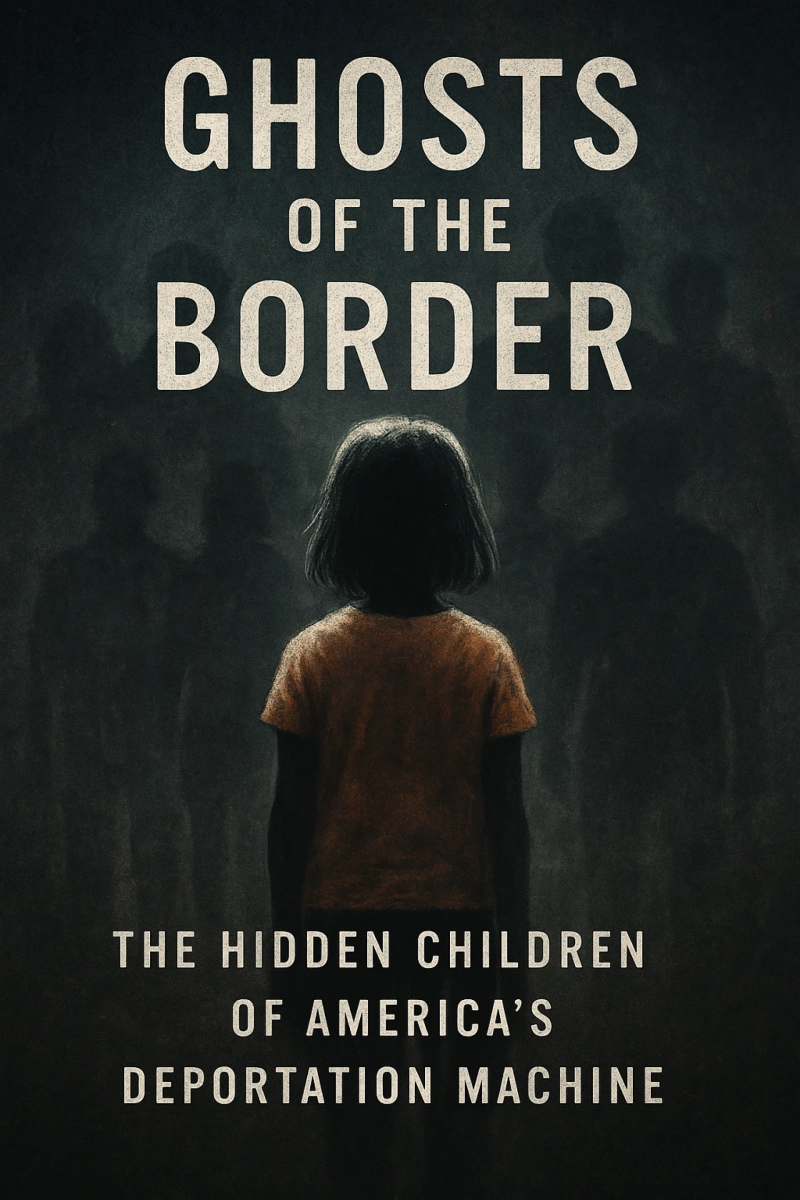Introduction: The Invisible
Aisha is one of thousands. Her story begins with silence, the kind that follows flashing lights and uniformed strangers at the doorstep. It’s a silence that stretches across phone lines and time zones, leaving behind a child whose life remains geographically intact but spiritually shattered.
These aren’t isolated incidents. They’re happening in neighborhoods with well-manicured lawns and schools with colorful murals: places where the America Dream promises stability. Yet for millions of U.S. children of undocumented parents, life teeters on a bureaucratic fault line. No grave marks the absence. No policy names it, but its effects ripple outward: socially, emotionally, and culturally.
To tell these stories is to insist they matter. To insist on visibility.
Systematic Separation
The architecture of deportation is vast and deliberate. From federal enforcement actions like ICE raids to state-level partnerships such as 287(g), systems are designed for efficiency, not empathy.
Detention protocols often ignore the presence of children altogether. Arrests may occur at workplaces, leaving minors without notice or care.
No centralized system tracks left-behind children, meaning their existence often vanishes from data sets and funding models.
Legal recourse is limited. Parents in removal proceedings typically lack access to family court protections, and children rarely have advocates assigned unless in foster care.
Then there are the deadlines, ones driven by quotas, not welfare; that rush the process of deportation while families scramble to find legal aid, shelter, or guardianship.
The scale of rupture is systemic. The silence, though, is engineered.
The Emotional Landscape
Grief, when unspoken, becomes distortion. For these children, loss is not clean or finite. It’s ambiguous and ongoing; what psychologists call “ambiguous loss.”
Symptoms resemble PTSD: anxiety, attachment disorders, academic decline, and social withdrawal.
Stigma compounds the trauma: many families feel unsafe speaking openly due to fear of further scrutiny or deportation.
Identity destabilization is common: children may feel estranged from peers, communities, and even their own nationality.
Teachers often notice behavioral shifts but lack training in trauma related to immigration enforcement. Meanwhile, social services aren’t triggered unless abuse or neglect is flagged; meaning millions fall into a psychological vacuum.
This isn’t just painful. It’s perilous, and its becoming generational legacy.
Myth, Memory, and Legacy
Human beings make meaning through stories and when systems erase those stories, children will invent their own.
Altars appear in bedrooms: photographs beside candle-less, handmade tokens of love and memory.
Ritual becomes resistance: birthdays celebrated across borders, lullabies repeated to preserve linage.
Myth becomes necessary: some children speak of their deported parent like a ghost or a hero, not out of fantasy but out of survival.
These mythologies offer emotional scaffolding where formal supports fail, and they often carry symbolic power bringing cultures, critiquing systems, and asserting humanity in the face of exile.
There’s deep potential here for storytelling, for advocacy, for radical visibility.
The Politics of Absence
Politicians talk about immigration but rarely about the children left behind.
Federal policy remains fragmented: no law mandates family impact reviews before deportation.
State responses vary wildly: while some cities offer sanctuary protections, others intensify surveillance and arrests.
Campaign rhetoric dehumanizes: phrases like “illegal alien” or “anchor baby” weaponize language , pushing these children further into the shadows.
Yet, these children are citizens. They vote in future elections. They shape culture. They inherit the moral record of today’s policies.
To erase them from platforms is to abandon a central pillar of American democracy: the promise of protection is vulnerable.
Conclusion: A Call To Witness
Aisha is not alone, but she is overlooked. As the country debates walls and borders, her existence asks a harder question: What happens to the soul of a nation that breaks families without grief?
This story is more than critique — it’s a call to witness. Advocacy groups urge:
Formal data collection on children affected by deportation.
Community-based family support networks.
Legislation prioritizing parental presence in deportation proceedings
This article does something data cannot: it opens a door to empathy, to reckoning, and to public truth-telling. These children deserve more than policy, they deserve myth, memory, and justice.



